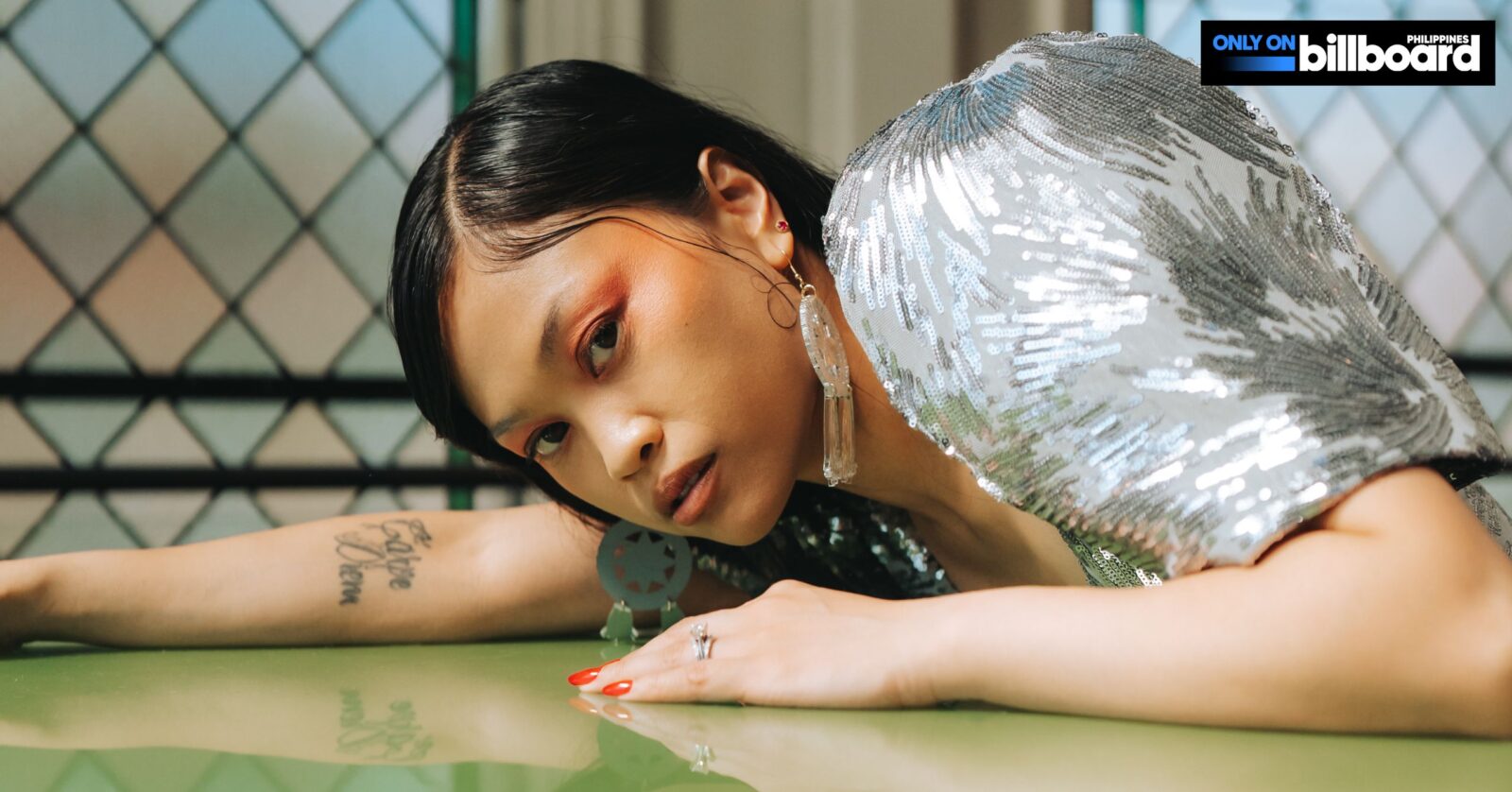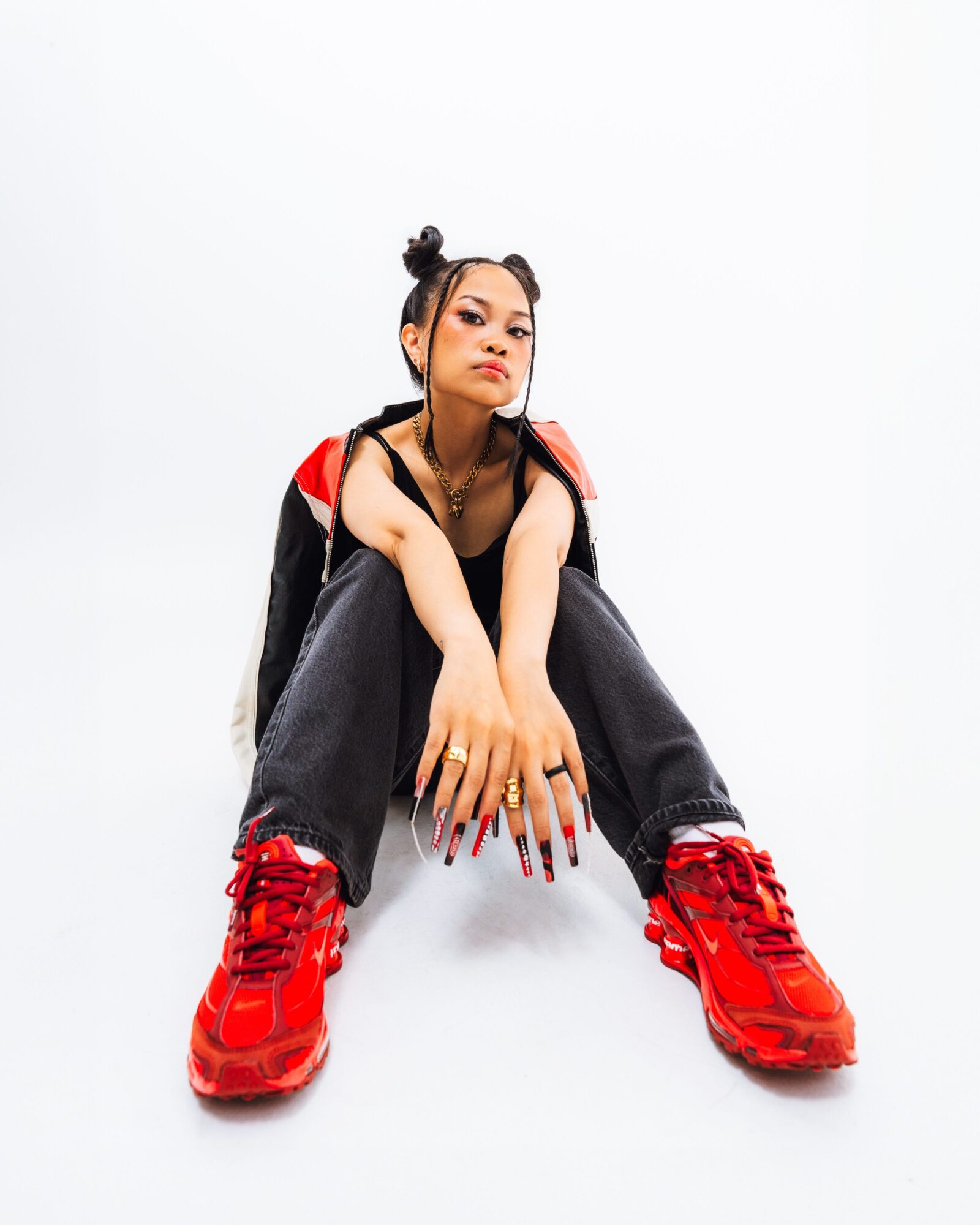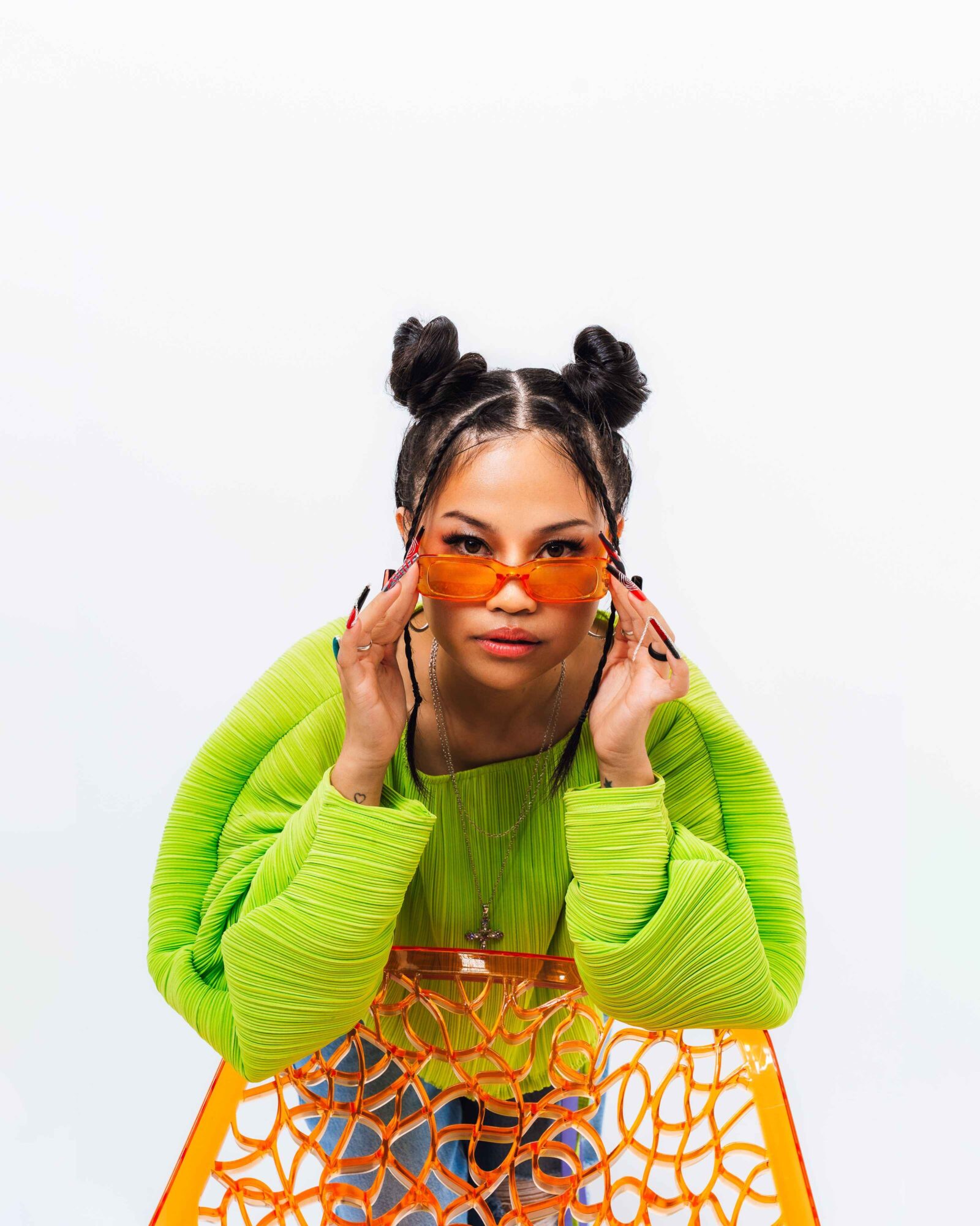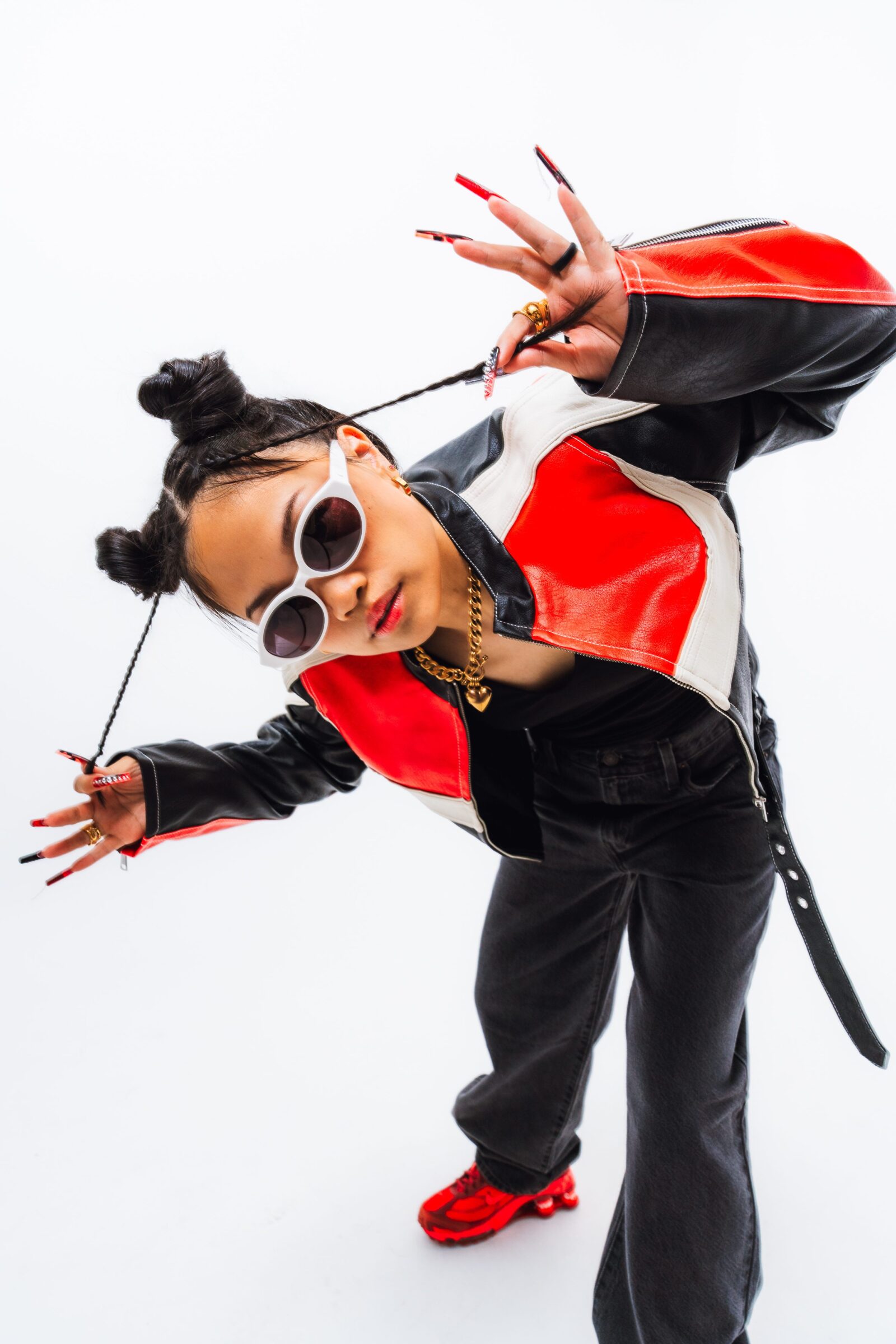Ruby Ibarra On Breaking Barriers and Building Bridges in the Filipino Hip-Hop Scene
“We’re in an exciting time to help shape what Filipino music sounds like, looks like, and what it can be,” the Filipina rapper tells Billboard Philippines, unpacking what the Filipino hip-hop scene is like on both the local and global scale.

Photographed by Gino Lucas. Courtesy of Bolo Music Group.
Photographed by Gino Lucas. Courtesy of Bolo Music Group.
With her lyrical prowess and unapologetic embrace of her cultural heritage, Ruby Ibarra stands as a significant figure who is making waves in the Filipino hip-hop scene.
Fresh off her groundbreaking win for NPR’s Tiny Desk Contest (and her succeeding viral performance on the platform), it’s clear that the Filipina rapper is reaching new heights in her career — with such peaks further introducing her and her artistry to the rest of the world. Now thrust into the limelight of the global stage, Ibarra remains aware of her platform and how much it means to the genre as we know it.
With a career spanning both the Philippines and the United States, Ibarra has carved a niche for herself as not just a musician but as a visionary and tastemaker shaping the very fabric of contemporary Filipino hip-hop. “I’ve been fortunate enough to witness hip-hop grow and develop tremendously. It’s such a great moment to be a Filipino emcee because hip-hop as a genre, culture, and career is becoming acknowledged, respected, and valued by our global Filipino communities,” she tells Billboard Philippines.
As Ibarra reflects on the current state of the Filipino hip-hop scene, her enthusiasm is palpable. She describes a landscape teeming with creativity and diversity, where Filipino voices are finally finding their place on the mic. From the gritty streets of Manila to the bustling urban centers of the United States, it’s evident that Filipino hip-hop is experiencing a renaissance, with artists like Ibarra who are at the forefront, breaking down barriers and challenging conventions.
In her journey through the hip-hop landscape, Ibarra has witnessed the evolution of Filipino hip-hop firsthand. Because over the years, she has seen the scene grow and flourish in a variety of settings that go beyond what we know.
In this exclusive interview with Billboard Philippines from our April 2024 Hip-Hop issue, Ibarra unpacks what the Filipino hip-hop scene is really like — both on the local and global scale — and envisions where it’s headed over the next few years.

Photographed by Gino Lucas. Courtesy of Bolo Music Group.
Billboard Philippines: How would you describe the current state of the Filipino hip-hop scene, both in the Philippines and in the United States?
Ruby Ibarra: The global Filipino hip-hop scene is thriving and doing an incredible job in allowing a variety of voices to be heard. I love seeing more Filipinas on the mic! I love hearing the diverse content and styles! It’s such a great moment to be a Filipino emcee because there’s a rise in visibility for hip-hop artists in terms of audience engagement and streams, as well as more opportunities for live events and mainstream features. Hip-hop as a genre, culture, and career is being acknowledged, respected, and valued by our global Filipino communities.
As someone who has successfully broken into both the Filipino and American hip-hop scenes, how do you see the growth and evolution of Filipino hip-hop over the years?
I can only speak as a fan and visitor when it comes to the scene in Pinas, but from my previous experiences there, I’ve been fortunate enough to witness hip-hop grow and develop tremendously. I remember back in 2013, I got the once in a lifetime opportunity to perform at the legendary Araneta Coliseum when Mike Swift invited me to be part of his Araneta Dreams concert, a massive line-up that showcased some of the best Filipino hip-hop at the time. I remember how much of a milestone that was, to have hip-hop as the magnetizing force that brought together so many artists, all while at a venue as huge and historic as Araneta.
Soon after, I was fortunate to watch FlipTop battles in Manila, as well as other rap battle events in Cagayan de Oro and my hometown, Tacloban City. These events and communities always showed me how much artists and fans in the Philippines were passionate and hungry to create and consume hip-hop. Now in 2024, the landscape has expanded even more, and I couldn’t be more proud. I have so much respect for the pioneers who helped cultivate the scenes in the Philippines and in the U.S.
Your collective, BOLO Music Group, aims to provide a platform for rising Filipino-American musical artists. What inspired you to create this collective, and what impact do you hope it will have on the hip-hop scene?
I believe that the ideation of BOLO Music Group was influenced by a series of events and experiences in my career. For one, it’s not lost on me that there are still very few Filipino-American artists breaking through the mainstream. Why is this the case when there are so many talented creatives out there? It’s still challenging for a lot of artists to find access to mentorship, to knowledge such as business and marketing strategies, industry networks, distribution, and, quite significantly, financial resources to help fund their projects.
Oftentimes, as artists, we are made to feel like we are alone while having to wear all the hats as a creative. With BOLO Music Group, my co-founder LASI and I want to help build a foundation in our community so that there can hopefully be another reference point for artists. Essentially, we want to create a hub where we share resources to help make the journey easier and more sustainable for other artists.

Photographed by Gino Lucas. Courtesy of Bolo Music Group.
How does it feel to be a trailblazer and mentor for a new generation of hip-hop artists, especially those with Filipino-American roots?
With the next generation of emerging emcees, I see so much potential and room for hip-hop to continue to evolve. For many of them, I’m reminded of the early days in my career and how their trajectory serves as a reminder to my journey and how much I’ve grown. For other emerging emcees, I recognize and applaud the heights they’ve reached, which is oftentimes beyond what me and my peers have done.
I’m proud and excited to know that I can help as a mentor to this new generation of hip-hop artists. I’ll never take the role of a mentor lightly, and I’ll always approach it with intent and responsibility. I think one of the critical roles of a mentor is to help hold the door open for the people we’re guiding and inspiring to ensure that their path is a lot easier.
Can you share some insights into the challenges and opportunities you’ve faced while fostering emerging talent within BOLO Music Group?
Establishing BOLO Music Group has led to our platform receiving a good amount of attention recently. I think that, naturally, people are curious to see what we plan to do with the label and how we’ll contribute to Filipino culture and the music industry. These curiosities excite me and catalyze a lot of inspiration and ideas because I know that we’re in a position to really make a difference.
We’re in an exciting time to help shape what Filipino music sounds like, looks like, and what it can be. Although I’m aware that a lot of people have expectations set for us, this doesn’t scare me because I’m confident in our team and roster of artists. I invite any of the upcoming challenges that we’ll face as a business and as a platform, because at the end of the day, the music will speak for itself, and we’re confident in who we are as a collective and what we have to offer.
Who do you consider to be the trailblazers in the Filipino hip-hop scene, those who paved the way for the genre as it is today?
When I think of trailblazers in the Filipino hip-hop scene, it would absolutely be remiss of me not to mention Francis M. first and foremost. He’s an artist who helped popularize the genre in the Philippines, especially at a time when it was challenging to do so, and he did it in a way that also celebrated his Filipino roots and identity. Without Francis M., I believe that Philippine hip-hop history and its trajectory would be vastly different. That man was and is the blueprint for so many — including myself!
Additionally, artists like Mike Swift, Loonie, and Anygma have made tremendous strides in their own respective careers, but more importantly, have each played such a significant role in uplifting Philippine hip-hop. I believe those three artists are so iconic because they’ve always brought their communities up with them. Similarly, when I think of the Filipino-American hip-hop scene, I think people like Bambu, Kiwi, and Prometheus Brown have contributed so much foundational groundwork.
I also want to note that there are also trailblazers now who are still helping shape what Filipino hip-hop is and what it can be, and that includes folks like EZ Mil and P-Lo; their music and accomplishments are absolutely helping the scene grow, and as a result, are influencing the next generation of artists. I believe that as an artist, your greatest accomplishment and accolade will always be your impact — in the art itself, in the industry, and in your community.
In your opinion, how has the influence of Filipino culture shaped the unique sound and style of Filipino hip-hop, both domestically and internationally?
I see Filipino culture influencing and informing Filipino hip-hop in many ways. For example, one of the things I enjoy about Filipino rap battles is that they are so uniquely Pinoy. The references, phrases, style of jokes, and even approach are so heavily influenced by Pinoy culture and balagtasan, and these things really set it apart from English battle rap.
Additionally, I see Filipino culture playing a major role in how a lot of emcees communicate things such as love, loss, struggle, and triumph in their music. When it comes to Fil-Am hip-hop, the culture plays a pivotal role in that it contributes to the emcee’s identity and voice. With that being said, culture has certainly contributed to Filipino hip-hop, and in more ways than one, has helped foster its own identity from the rest of the world.

Photographed by Gino Lucas. Courtesy of Bolo Music Group.
As an artist who has collaborated with various talents, can you highlight some collaborations that you believe have been pivotal in showcasing the diversity and richness of Filipino hip-hop?
One of my most favorite collaborations that I’ve done so far is my song “Us” with Rocky Rivera, Klassy, and Faith Santilla. This record is one that I’m particularly proud of because it’s unabashedly and uncompromisingly Filipina in its lyrics, perspectives, and voice. Both hip-hop and Filipino culture have historically been patriarchal, and I believe this song challenged those notions and structures completely. For me, nothing is more “hip-hop” than when you challenge the status quo in your most raw and authentic way.
Another collaboration that I’ve done that I think showcases the richness of Filipino hip-hop is a record called “Waray Waray Worldwide,” which features a large line-up of emcees across Leyte. I think this song was such a dope way for us to not only get to showcase the Waray language, but also to represent Leyte, which I think still has so much potential to break through in Filipino music. In some of my recent songs, I’ve really been intentional about including Waray or Bisaya in the lyrics because the Philippines is not a monolith and there are so many Filipino languages that deserve to be heard, showcased, and normalized in the media.
Looking forward, which emerging artists in the Filipino hip-hop scene do you see as the next big thing? What qualities or elements do you think set them apart?
There are so many emcees in the Filipino hip-hop scene that I’m really excited about, like Fateeha of Morobeats and Zae. These Filipinas are so talented and are absolutely crushing it. I respect their pen game and their microphone presence. When you hear a dope emcee, it’s always going to be undeniable; how they deliver the words and what they are saying will always help set them apart. A dope emcee makes you feel like you haven’t heard anyone like them before, and you want to hear more — that’s how I feel when I listen to these two emcees.
How do you navigate the balance between staying true to your cultural roots and reaching a wider, more global audience with your music?
I think that I’m able to navigate balancing staying true to myself and reaching a wider audience by not compromising the former. From the start of my career, I made a promise to myself to always be a fan of the music that I make first; that no matter how I evolved as an artist and how I decided to utilize my platform, that I would always be comfortable and authentic in what I was doing, and that included celebrating my roots.
When I accepted and adopted this school of thought, I noticed that my career began to flourish and that my music found the ears of the right people who wanted and needed to hear what I had to say. I think that when you’re authentic in what you do, the rest will follow and fall into place. In doing so, I feel proud knowing that I’ve reached a handful of career milestones by just being myself, and that it has resonated with a lot of people.
Revisit Ruby Ibarra’s empowering NPR Tiny Desk performance below: